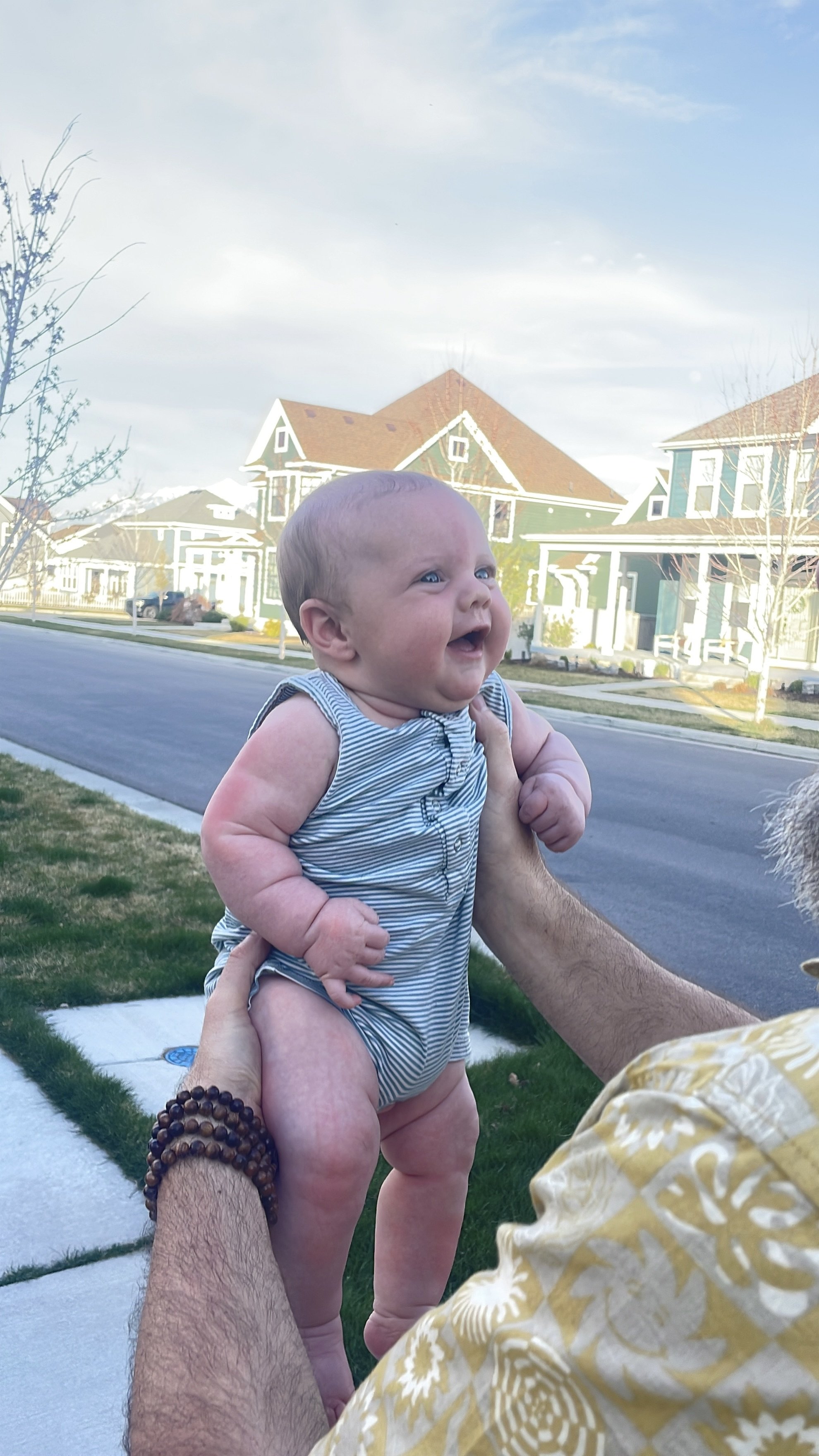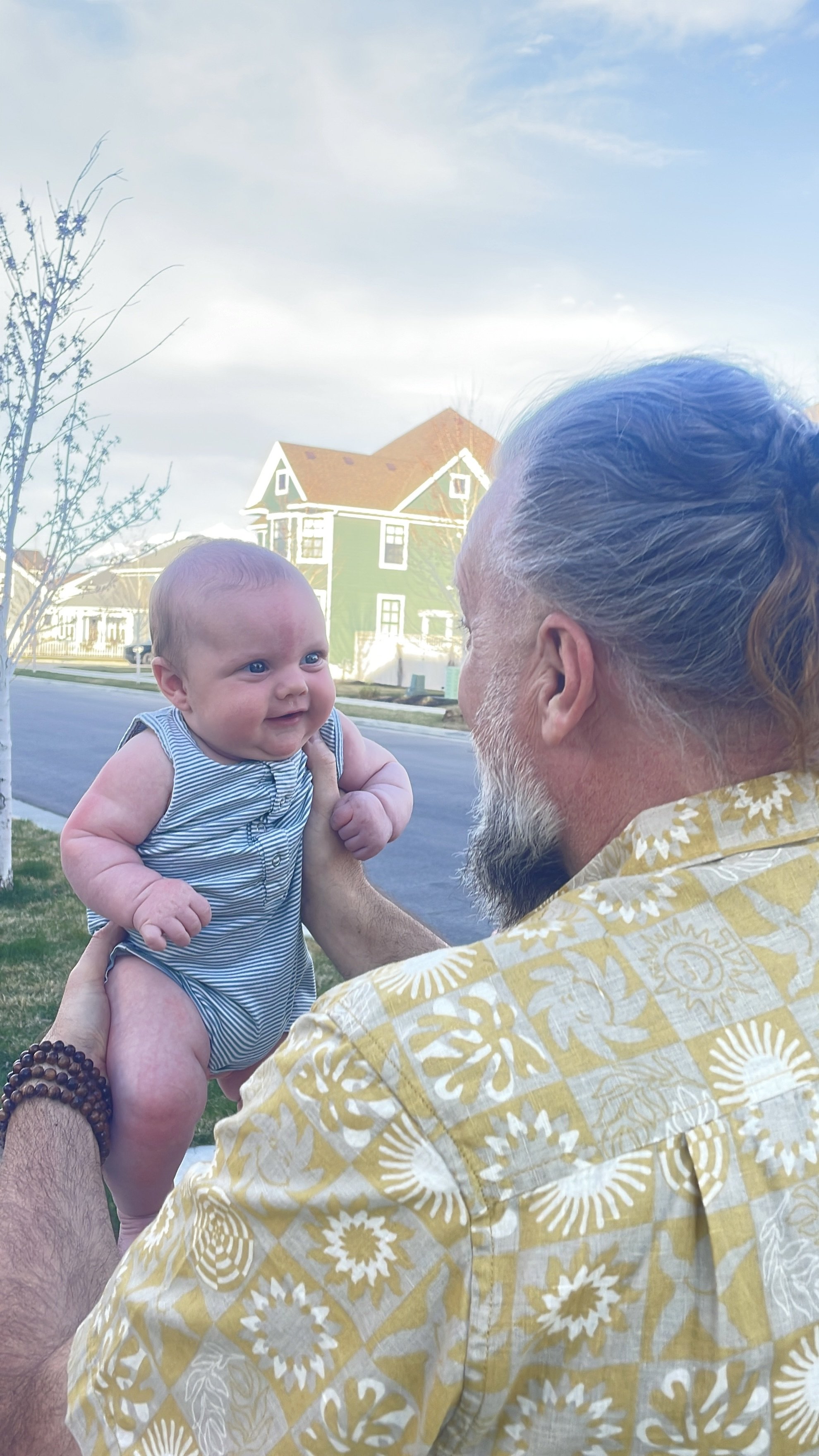THE TRUTH ABOUT TRAUMA
When the funeral home employees rolled my son out our front door, I nearly collapsed with grief. This was the same door my son stood gleefully by on Halloween to hand candy to children. He was a giver of the sweetest sort – and he found more joy in giving candy to kids than getting candy for himself. This was the door Mitchell’s best friend would knock and ask to play. This was the door our hospice nurse told us Mitch was about to die … and in that same moment, heaven-sent an angel to bear up our broken hearts.
When I first became a father, I wasn’t prepared to be a parent. Who is, really? I quickly discovered that when you have a child, your life changes. Forever. It doesn’t simply change because you’re responsible for the well-being of a baby; it changes because your soul multiplies. Once someone has a child, they stop belonging to themselves. It’s as if part of our soul is cloned, and whatever happens to our child may as well happen to us. We’re pained when they hurt, overjoyed when they’re happy, and when they die … our very souls shatter. Though we may put our pieces back together, eventually, we’re never the same.
I was terrified of this moment. I knew this time was near, so I tried to put it out of my mind and live in fragile moments that remained. We didn’t know if we had five minutes, five hours, or five days with our son, we just knew that he was on the thinnest of ice and it was about to break.
Suddenly, in a blink, I found myself watching two strangers roll my sweet son into the bitter winter’s air. I was mortified. Incredulous. I was just talking to Mitch the day before, and he was very much alive … so sweet, tender, and innocent. As they loaded my boy into the back of the vehicle and drove away, panic shot through my body, tears rolled down my cheeks, and began to freeze. I physically gasped for air as though I was watching my child in the act of being kidnapped.
As they drove away, every part of me wanted to run down the street and stop them. I wanted to say, “Please, let me get in the back with my boy. He must be so scared, cold, and lonely. I need to comfort him during this difficult time.”
I cannot conjure the words to describe the trauma I experienced at this moment – and the subsequent traumas of grief I felt a million times thereafter. I wept so hard that morning I threw up. Then, I wept even harder, and I thought I broke a rib. Although the sun was rising, the long night of grief was only just beginning. Over the next few years, I learned some painful truths about grief. I learned some truths about trauma.
You learn to live with fear.
Grief and fear feel identical in many respects. C.S. Lewis said it best, “No one ever told me that grief felt so like fear.” Looking back on the early years of my grief journey, I was living in a deep, emotionally traumatic state that felt like fear. And when the night came, I felt feelings of terror. Every. Single. Day.
Deep grief is prolonged trauma.
If ever you get impatient, wondering when your friend or family member who grieves will get over their sorrow, if you’re ever tempted to think it’s time for them to move on, remember that grief is trauma in slow motion. Everyone on this planet would do well to remember Shakespeare’s observation, “Everyone can master a grief, but he that has it.”
Others will move on, but you will not.
Another brutal truth about trauma is that for spectators of sorrow, empathy has a comparatively short shelf-life. Others will move on, as they should. But you will not. At least not for a very long time.
Perhaps the best counsel to those who suffer is this: don’t expect others to understand your sorrow or to linger as long as your sorrow will. They cannot – for after all is said and done, the journey of grief is traveled by one.
To the spectators of sorrow, don’t expect the one who suffers to move on at your leisure or burden-free pace. Remember that it is they who carry the weight of sorrow – a weight you cannot imagine, not even in your nightmares. If you’re to serve them, you can lift their weary hearts with words of compassion. I’ve found that saying, “I’m sorry that you hurt. I care,” is enough, and more.
It Gets Worse, Sometimes Much Worse, Before It Gets Better
I’ve said this often: death is the easy part; it’s the aftermath that’s hardest. So, when you see someone who's lost someone – know that they’ll need your love, compassion, and empathy gently at the funeral and the months to come – but more profoundly in the lonely years that follow.
I’ll repeat the last part: they’ll need your love more profoundly in the lonely years that follow.
Time & Healing
When it comes to the trauma of grief, time doesn’t heal. Instead, time creates space for us to heal if we tend to our wounds with care. I think of trauma like the adrenaline one might feel just after a ride on a terrifying rollercoaster. It takes time for fear to leave your body. The first 15 minutes we feel the trauma course through our veins – but over time, we go back to our regular state of serenity. The mistake we sometimes make is thinking the death of a loved is the rollercoaster. It is not. It is only the beginning. The rollercoaster of trauma comes from feelings of self-doubt, regret, endless what-ifs, and longing to see our loved ones again. That trauma is a ride that takes many, many years to fade away.
Trauma Shatters You
Trauma doesn’t just break a part of you; it shatters many parts of you. Sometimes all of you. Yet, somehow, some way, we gather our broken pieces and slowly reassemble ourselves. Depending on the nature of loss, it can take many, many years. We are never the same person on the other side of trauma – instead, we become a mosaic of our former selves. Sometimes jagged and fragile as our pieces begin to set into their new arrangement. But always, we emerge a new kind of beautiful.
The truth about trauma is that until we experience it first-hand, it isn’t just harder than we imagine; it’s harder than we can imagine. Yet, another hopeful truth about trauma is that it lessens over time – how fast and how much is determined by a multitude of factors, most of which are under our control.
At first, I wondered if the sun would ever rise and that I might live out my days in the dark shadow of grief. There was a time I used to look at this photo and weep. Today, I look at this moment and say reverently, “I remember you, son. And I will spend the rest of my life trying to honor yours.”

















